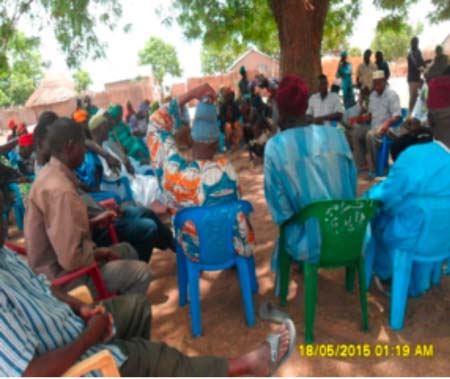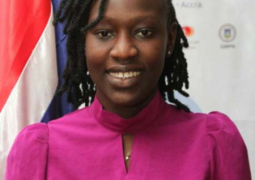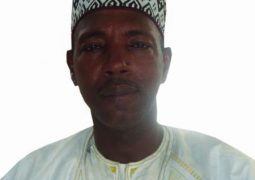
The National Council for Civic Education (NCCE) recently concluded a two-week community sensitization exercise in Central River Region- North & South on “Citizens’ Participation in Governance and Politics.”
The NCCE funded the sensitization activity conducted in various locations, as part of their routine exercise to enlighten the masses on their role and responsibilities.
Speaking at various locations, Yusupha Bojang, programme officer of NCCE, said the exercise was part of their ongoing efforts at cultivating an environment of democratic continuity in The Gambia that would enable all citizens to fully participate in the governance process of the country, through the promotion of political and civic consciousness.
The promotion of rights and freedoms of all citizens is in accordance with the constitution of The Gambia and other regional and international legal instruments to which The Gambia is a signatory, he said.
According to Mr Bojang, among the themes discussed in the exercise are democracy, governance, politics, citizenship, civic participation and civic responsibility.
He said the activity covered eighty-four communities in CRR North and South, with communities engaged stretching from Sami Pachonki in Sami district to Kaur in Saloum and from Sare Soffe in Upper Fulladu West to Sinchujugary in Niamina Dankunku.
Making a presentation on the establishment and mandate of NCCE, Ansumana Yabo said civic education in The Gambia is perceived as a process through which the citizenry acquires knowledge, skills and values that are needed for effective democratic citizenship.
It was based on the perception needed to promote the civic consciousness of the citizens, he said, adding that the 1997 Constitution provides for the establishment of a Civic Education Programme for the enlightenment of the society on civil matters.
He said NCCE is mandated to work with the citizenry as it works with government and promotes such programmes at national, regional and district levels aimed at realizing the objectives of the constitution.
The NCCE is also out to educate citizens of The Gambia about international, regional and sub-regional matters relevant to The Gambia; formulate, implement and oversee programmes aimed at inculcating in the citizens of The Gambia awareness of their civic and fundamental rights, duties and responsibilities.
In his presentation at the sensitization exercise, Junkung K. Saidy, NCCE civic education officer, said the NCCE was created as an independent non-partisan council under the constitution, to design and coordinate civic education programmes and to serve as the advocacy component to the National Governance Programme.
The Act thus places responsibility on the council for sensitization, information and education of the citizenry, particularly at the grassroots of their rights and responsibilities under the constitution, he said.
Regarding citizens’ participation, Mr Saidy said one of the most basic signposts of a democracy is citizens’ participation in government.
“Participation is the key role of citizens in democracy,” he said, adding: “It is not only their right, but it is their duty.”
He
also said citizens’ participation may take many forms, including standing for
election, voting in elections, becoming informed, debating issues, attending
community or civic meetings, being members of private voluntary organizations,
paying taxes, and even participation to build a better democracy.




